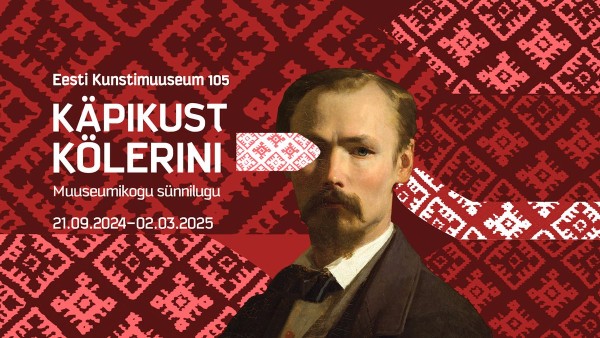Humour, especially clothed in satire and irony, is a difficult genre for any writer to tackle. Not because it is inherently difficult to master, but it is that humourless readers, especially in the internet age, are the bane of the gifted author. Unable to get the joke, grasp the nuances of sly social commentary, anonymous, hence often pusillanimous commentators post truly ignorant comments online. More often than not they miss the point and far too often take out their attitudes by attacking if not the material, then the author him or herself.
Vello Vikerkaar, an obvious pseudonym, was the brunt of some such comments here a number of years ago when his blog postings were reprinted in Estonian Life, with his permission. Vikerkaar, whose name translates into Rainbow, claimed to have grown up in Scarborough, gone to Toronto’s Estonian schools, remembering fondly teachers by name, who probably have no clue as to his identity. A nom de plume, especially a blatant one is not a bad thing, considering how dour and humourless Estonians can be when they are poked fun of.
The author is in fact a Peace Corps veteran who chose to stay in Estonia, married a local beauty, fathered a son, and set off learning the language. His observations are bang-on and now for the second time his musings in English (two books have appeared in Estonian) – some from his blogs, others from his contributions to Postimees have been published. The first, which the undersigned ordered through Amazon, and may still be available there, was Inherit the Family, Marrying into Eastern Europe (2009). It is a delightful read and recommended.
Vikerkaar’s first book was Pikk jutt, sitt jutt (Long story, shitty story) a collection of columns that appeared in Postimees in Estonian, published in 2009 as well. Like Hilary Bird, Tartu resident, recent visitor and lecturer in Toronto (Vello has also lectured here) who similarly writes with tongue often firmly in cheek, Vello writes in English, and his efforts are translated by the locals to great effect.
Advertisement / Reklaam
Advertisement / Reklaam
Jonathan Swift, perhaps the greatest satirist ever, was an obvious influence on Vikerkaar. Perhaps P.J. O’Rourke as well, for Vello shares with him the ability to write pithily yet pointedly. There is hardly a topic that the humorist/satirist finds taboo. This is confirmed throughout Mantra Man and other stories, published in 2015, recently arrived on this desk courtesy of Piret Noorhani of VEMU. (In his dedication to Piret’s copy Vello calls her „The Custodian of All Things Estonian in Canada.“ He suggests that if she ever tire of that position he will mount a movement to declare Piret Guardian of All Things Estonian in the World, for Ilves can’t run for a third term, after all…) It is evidently the original material from which grew the Estonian translation Tantramees, published in 2014.One of the finer columns to be found in Tantra Man addresses precisely what the first paragraph here pointed out: „Commies and Commentators“. Vello agrees, that when you publish something – blog or newspaper - it is hardly surprising, that you open yourself up to abuse. However, he wondered at the time, why he still allowed anonymous commentators on his blog, thinking that perhaps it might be time to change. That sentiment could easily be applied to how EWR and Estonian Life’s webpage should change editorial policy, thereby depriving some pretty narrow-minded if not flat out mean people of getting their rocks off…
Flat-out funny are Vello’s musing about the language, culture and daily practices of Estonians. Just dealing with the quotidinial necessities – renovating, shopping, line-ups, bureaucrats, self-important government officials – as an obvious non-Estonian, even if he attempts to do that eesti keeles out of respect to the people, seen from the perspective of an American in Tallinn is rib-splitting. And, as successful satire and humour always underscores, right on the money.
Vello knows he stands out, as emphasized in „Going Local“. But he refuses to ape anyone, trying to bend in, suggesting that he, like the country itself is in a tansitional phase, trying to find a distinct identity. His observations about Finns and Russians visitng Estonia in this story are remarkably accurate.
Advertisement / Reklaam
Advertisement / Reklaam
Nothing is a sacred cow – hospitals, politics, culture, Soviet-era shopkeepers, education, ethics (and the lack thereof among many shady construction workers) – the list is long. Every story is worth reading, and the book is best enjoyed one tale at a time, even though the temptation is to keep going on the journey.The title of this article comes from another excellent Vikerkaar salvo, the introduction to one of Vello’s dreams, to be a speechwiter for Toomas Hendrik Ilves with an accompanying proposed draft of a commencment address by Estonia’s President to graduates of Tartu University in June of 2011. Vello justifies this desire: „One voice can change a room. If it can change a room, then it can change a city…can change a state…can change the nation…can change the world.“ Call Vello an idealist if you will, but the humourist believes it. (At least in this spoof of a speech.)
Warning. To be an observer of Vello Vikerkaar’s journey through Estonia, all things Estonian, and even some current affairs issues from abroad, is highly addictive. It is available online through Amazon, in both regular printed and bound as well as Kindle format. If you are an Estonian with a sense of humour, able to not only laugh at yourself but your people, are not a craven, anonymous commentator-coward, then indeed, this book is most definitely for you.
























